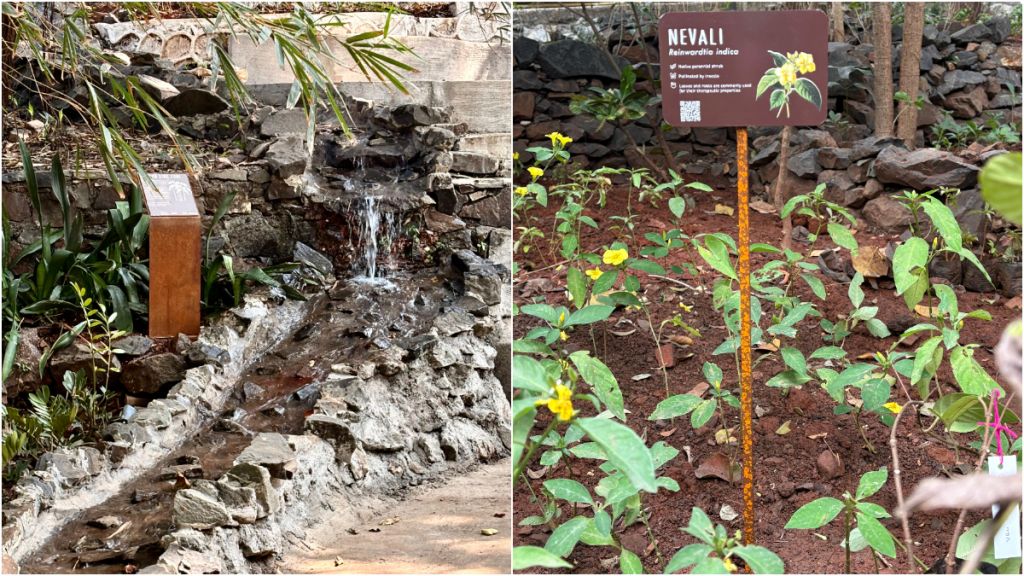
Situated in Mumbai’s Malabar Hill, Shantivan Gardens has been reborn as ‘The Nest’ following a large-scale revamp. Over 8,000 new plants have been added, with a focus on planting native species. This initiative has transformed the once dilapidated space into a sanctuary for biodiversity.
During the nine-month-long renovation, a 70:30 ratio of native to exotic plants was maintained. Today, the garden is home to over 350 plant species, including nearly 200 native varieties. A biodiversity expert involved in the project highlighted, “Every plant is labelled, with its name, species and use. A QR code below directs you to a micro-site giving in-depth knowledge about the mentioned flora.”
New zones inside the garden
The garden has been thoughtfully divided into seven unique zones: indigenous, aromatic, semi-aquatic, bird, butterfly, medicinal, and carbon-sink. These zones not only enhance biodiversity but also provide habitats for various species.
Since its revival, ‘The Nest’ has become a haven for fauna, including white-throated kingfishers, pond herons, Indian golden orioles, peacocks, parakeets, and Blue Mormon butterflies. The project’s focus on linking fragmented ecosystems is part of its larger vision of creating ‘stepping-stone’ habitats to facilitate the migration and dispersal of flora and fauna across the city.

Garden blends nature and utility
At the heart of ‘The Nest’ lies a central gazebo surrounded by a stream and clearly marked pathways made of stone crete, a Rajasthani innovation offering acupressure benefits. An amphitheatre has also been introduced for recreational activities, and sanitation facilities have been upgraded using repurposed wood.
“Urban spaces like The Nest play a crucial role in preserving the delicate balance of our ecosystem,” said Radha Goenka, founder of The Heritage Project (THP) and director of RPG Foundation. “They inspire a deeper appreciation for the natural world and our place within it. The Nest marks a significant milestone in our vision of creating a greener and more resilient city for future generations.”
Green Vision
The revival of Shantivan Gardens is part of a broader Green Corridor initiative led by THP in collaboration with nature:re and the Brihanmumbai Municipal Corporation (BMC). This initiative aims to connect green and open spaces along Mumbai’s western coast, promoting a greener and more sustainable urban landscape.
As a biodiversity haven, ‘The Nest’ sets an example for revamping urban spaces into ecological treasures. With its carefully curated plant species, fauna, and modern features, the garden represents a step forward in the city’s quest for sustainability.